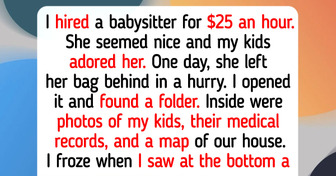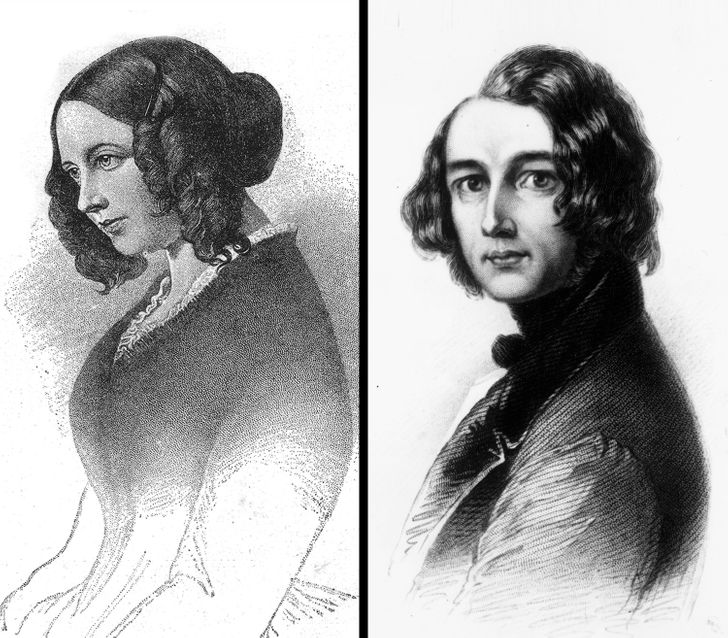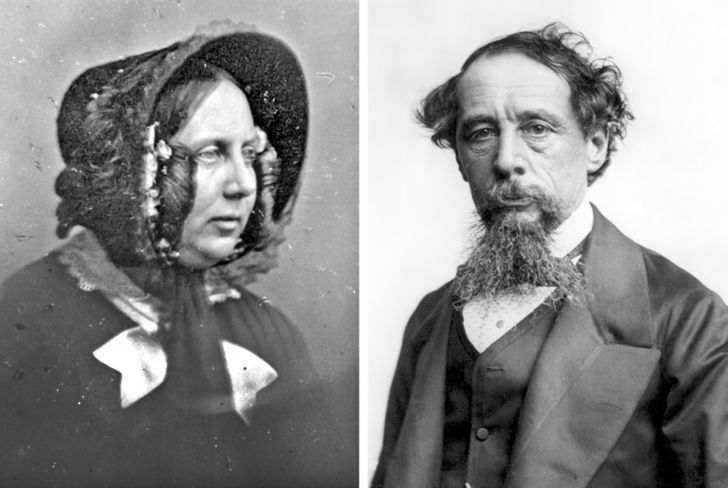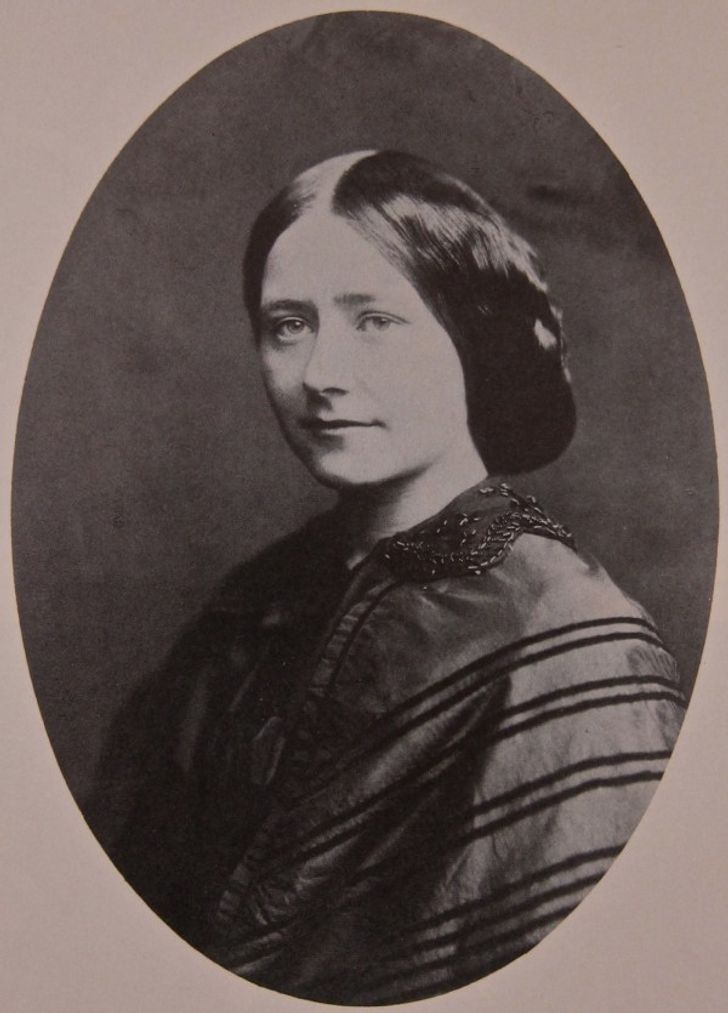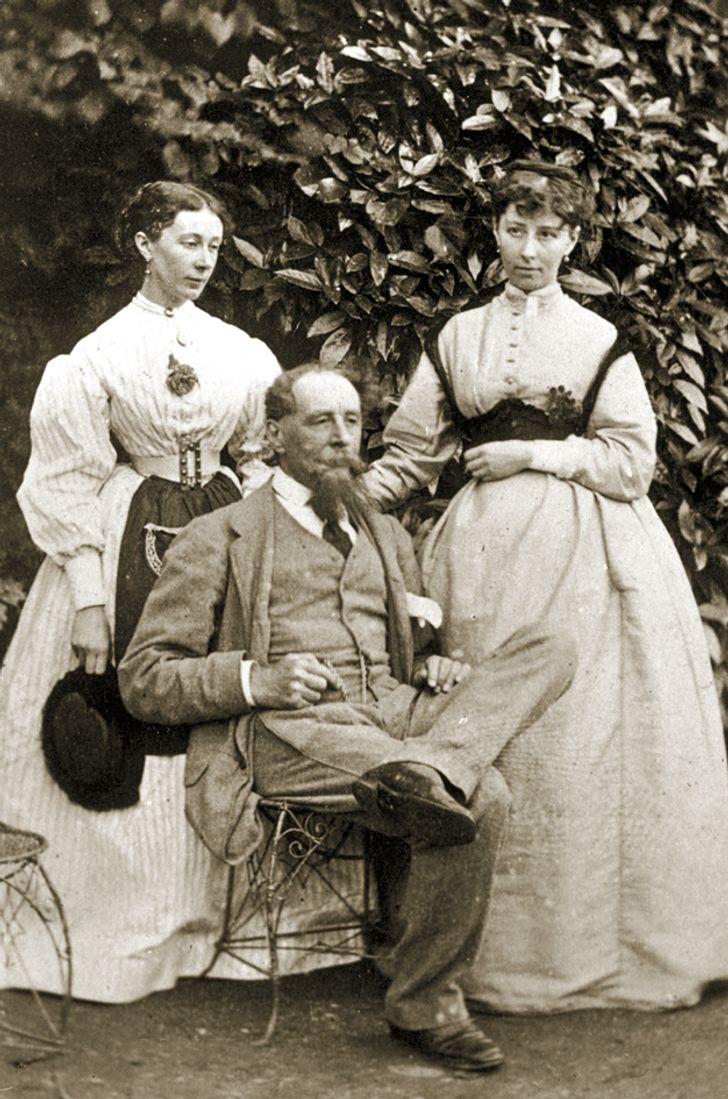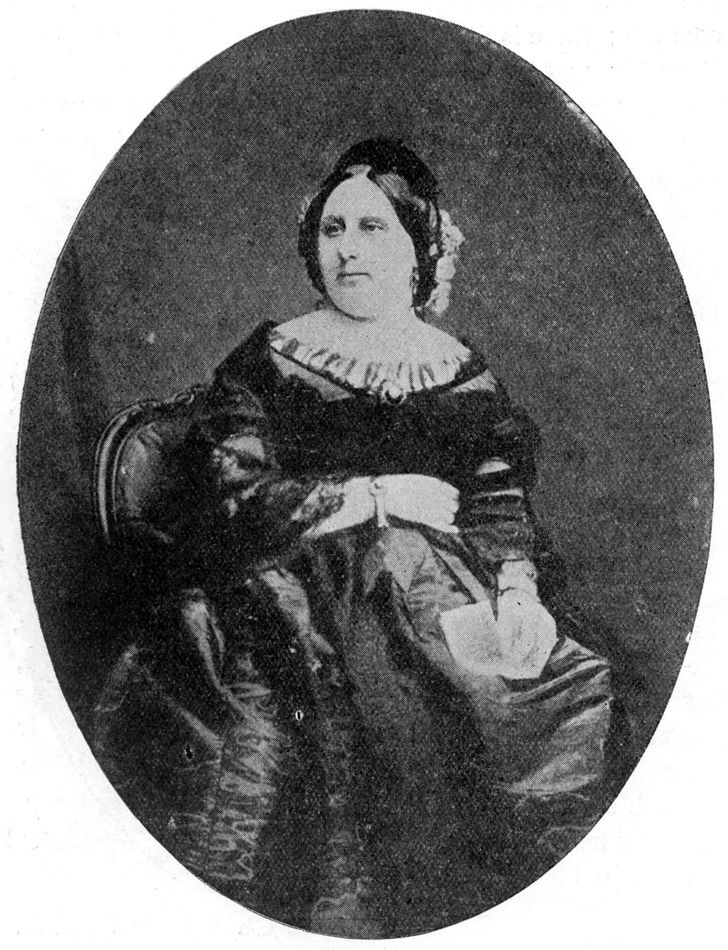The Story of Dickens’ Wife Who Walked Out the Door and Left Her 10 Children Behind Forever
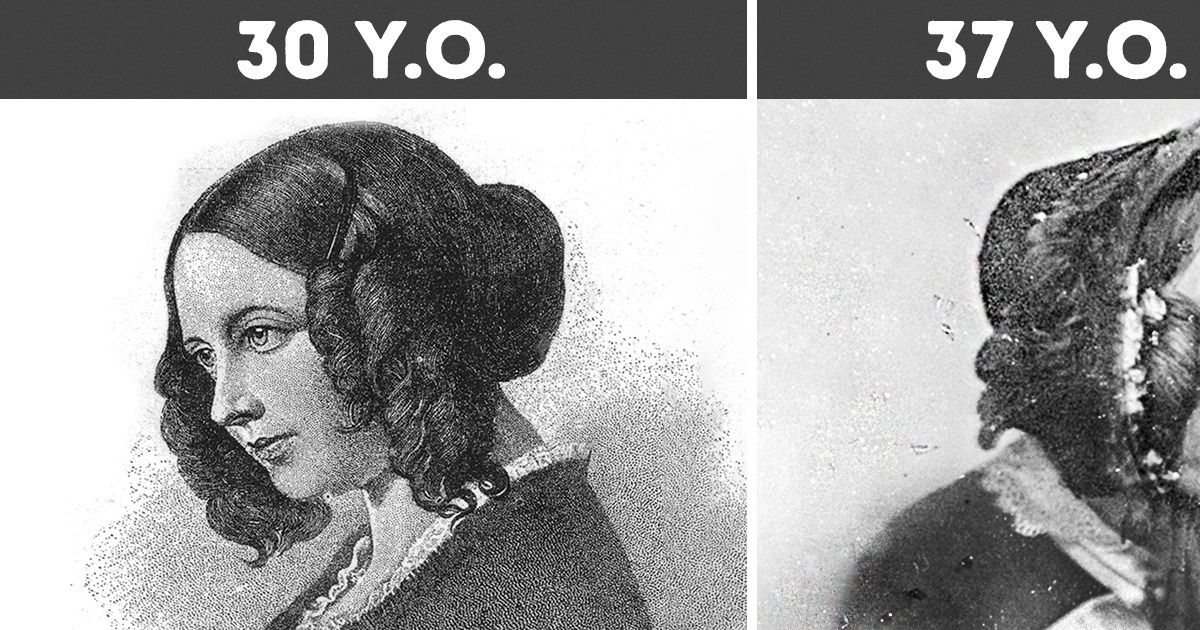
Catherine Dickens’ family life was not a simple one. She could’ve become an actress, a writer, or a chef but she became a wife of a genius and a mother of 10 children. The great English writer, Charles Dickens dreamed about having a big family and a wife who would keep his house warm. But after 20 years of living together, he saw a crazy person in the woman he once loved and didn’t have anything in common with her anymore.
Here at Bright Side, we want to share the story of how family happiness can harm you if you give up on your plans and talent, and devote yourself completely to your husband and children.
They were happy just like all newlyweds are.
Catherine Hogarth was a smart, young, good-looking 20-year-old woman when she met Charles Dickens in 1835. At the time, he was a journalist and he wasn’t famous at all. She grew up in a good family and was the daughter of an editor, musicologist, and a music critic along with a music publisher. Charles dreamed of having a strong, loving family and a wife who would be a good housewife and mother.
One year later, they got married and were happy just like most newlyweds. They were free, young, joyful, had no financial problems, and went to the theatre and social receptions.
“My best half, Mrs. D, and my dearest wife,” were how Charles often addressed his beloved Catherine.
“I will never be as happy again as I was in that apartment on the 3rd floor even if become rich and famous,” Dickens remembered.
Their challenge with children
9 months after the wedding, in 1837, the couple had their first child, Charles Dickens Jr. Catherine had grown ill and it was hard for her to feed the child which led to postpartum depression.
Charles tried to support his wife and was happy that he had an heir. The writer was even more thrilled to have 4 more children. After having their fifth child, he grew depressed and it was the first time he complained that the gods were too generous with them.
“It looks like we are going to have another child on New Year. Unlike the King from the tale, I keep praying to the gods to stop bothering themselves because I have enough already. But they tend to be very generous to those who deserve their favor!”
Catherine could’ve become an actress or a writer.
During the time between being pregnant and giving birth, Catherine was still able to show that she could be a good mother as well as a wife. Mrs. Dickens acted in her husband’s plays and even wrote a cookbook called, What Shall We Have for Dinner? that was published in 1851. She collected the recipes to all of Charles’ favorite dishes, some tips on house management for young wives, and examples of reception plans for anywhere from 2 to 18 guests.
She also turned out to be a good travel companion. Before they had their fifth child, the Dickens family traveled to the US. The trip was difficult and dangerous but Catherine proved to be a strong, cheerful woman. Charles Dickens went further into this in a letter to his friend:
“She overcame the first difficulties we had to face in the new circumstances and she showed herself as an experienced traveler. She never complains and never shows fear even in situations when I would think it was reasonable. She is always cheerful and strong even though we traveled through very tough lands for a month without any breaks; she easily adapts to any situations and makes me happy with her courage.”
The story of a bracelet and a scandal
Their fifth son Francis Jeffrey was born at the beginning of 1844.
For 15 years, Catherine either was pregnant, giving birth, or was feeding children. She had 2 miscarriages and the death of a daughter who lived for just 8 months. So in total, Mrs. Dickens gave birth to 10 children.
The English writer kept blaming his wife for her excessive fertility and constant state of pregnancy.
Catherine kept irritating him more and more. In the end, Charles Dickens came to the conclusion that they had never been a good match. He told all his friends that Catherine was not meant for him and that he wasn’t meant for her. He was too cold and apathetic, and she was too limiting, too overweight, not beautiful enough, and a bad mother. She was also too nervous, she cried too often, and was too jealous.
After the birth of their last child (probably in order to prevent the appearance of more children), the writer ordered to have their bedroom split into 2 parts and put bookshelves in between them.
Soon after that, in the spring of 1858, a silly and crucial mistake was made: a bracelet from Charles was delivered to the Dickens’ house. It was meant for the young, 18-year-old actress Ellen Ternan. The delivery guy confused the address. Catherine exploded and caused a scandal. But Dickens gave her a simple explanation: “Giving presents to the actresses that take part in my plays is a regular thing, and you, my dear wife, are too jealous and you make me tired with these terrible scenes.”
Charles insisted that Catherine go to Miss Ternan, hand her the bracelet, and apologize for her insulting behavior.
Catherine couldn’t take it anymore, slammed the door, and left the genius forever.
Later, it was revealed that Mr. Dickens had actually met Ellen a year before this all had happened and rented an apartment for her, her mother and her sisters. The actress accompanied the writer everywhere. But they became lovers only 5 years after Charles’ divorce.
The divorce
Neither of their daughters invited Catherine to their weddings. They didn’t even inform her about the death of her son, Walter.
Charles Dickens spoke to the public about his divorce. In 1858, he published this in the family magazine, Household Words:
“Some domestic trouble of mine, of long-standing, on which I will make no further remark than that it claims to be respected, as being of a sacredly private nature, has lately been brought to an arrangement, which involves no anger or ill-will of any kind, and the whole origin, progress, and surrounding circumstances of which have been, throughout, within the knowledge of my children. It is amicably composed, and its details have now to be forgotten by those concerned in it...”
Their oldest son, Charles was the only child to go away with Catherine. The other children, according to the laws of the Victorian era, were supposed to stay with their father. Charles Dickens didn’t support the communication between his children and their mother but didn’t prohibit it either.
Later, her daughter Kate wrote about her mother:
“There was nothing terrible about my mother. Just like all of us, she had her problems but she was a good, kind person, and a true lady. My poor mother was scared of father and she had no right to express her opinion. He was never allowed to express what she felt.”
“He loved me once.”
Until the end of her days, Catherine lived alone and longed for her husband. She outlived Charles by 9 years and in 1879, she died of cancer. Before she died, she gave her correspondence with Charles to her daughter Kate:
“Give these to the British Museum — that the world may know [Charles] loved me once.”
Catherine Dickens was buried in Highgate Cemetery in London with her infant daughter Dora, who had died in 1851 at nearly 8 months old.
During the scandalous divorce of Mr. and Mrs. Dickens, many people supported the writer. They thought, “How could anyone live with a wife who didn’t take care of herself, who was always in a bad mood and didn’t want to become better, especially when she was with such a genius like Charles Dickens?” Some people sympathized with her: many women understood that it wasn’t always easy to be in a good mood when all you did was give birth and feed children. It’s hard to be happy when you’re not loved and are constantly criticized.
Who do you sympathize with more in this story? Tell us down below.
Comments
My whole heart goes out to Mrs. D. Mr. D was the typical male of the times - he lived as though he were single while she had to do everything and show the outside world she was a mother, wife, housekeeper, party planner, chef, etc. etc. All while expected by the husband to still be the slim attractive girl he met years before. Sorry to say, but childbearing and rearing take a lot out of a woman. It's impossible to stay the same, and that should be understood and accepted by the husband!
Please get your facts right! Catherine Dickens did not 'walk out on Charles' but he made her leave the home, rented new premises for her and sued for a legal separation. She was devastated. They were never divorced!
Fivo com ela
Charles dickens é maravilhoso escritor mas esse episódio da vida dele é abominável, ele se apaixonou por uma menina de 17 anos e quis se ver livre da mulher, até tentou interná-la num sanatório mas graças a Deus, o médico teve bom senso e ética e não o fez. Imagina, depois de viver com ela por 22 anos ter 10 filhos e tentar interná-la como louca, muita crueldade.
Related Reads
Helen Hunt, 60, Stuns During Her Latest Appearance, and Her Lips Become the Center of Attention

A Girl Born Without Nose, Who Was Called “Voldemort”, Proved Everyone Is Beautiful in Their Own Way
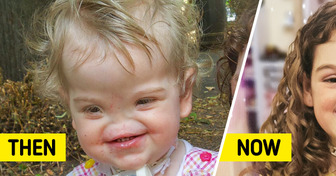
«I Thought She Couldn’t Lose Weight,» Keely Brosnan Looks Completely Transformed in New Pic
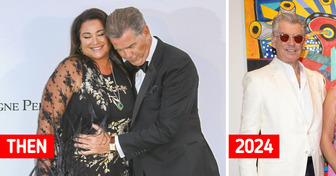
I Refuse to Be a Dog-Sitter for My Son’s Fiancée—and My Payback Was Brutal
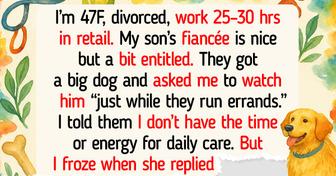
I Gave Up My 2-Month-Old Baby for Adoption Because I Chose My Own Happiness
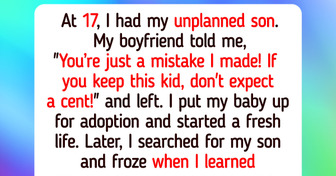
I Refused to Talk to My Parents After They Chose My Ex-Wife Over Me

I Refused to Pay for Our Valentine’s Dinner—Then I Learned the Heartbreaking Truth

10 Moments That Show Kindness Doing the Heavy Lifting
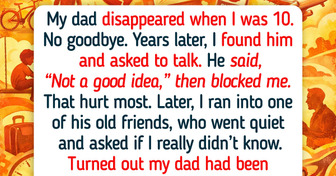
14 Stories From Cleaners That Are Wilder Than Any Movie Script
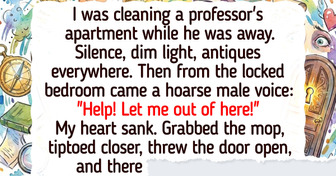
10 Hospital Workers Who Prove Kind Heart Is a Powerful Medicine

15 Stories That Show Kindness Is a Quiet Language the World Needs
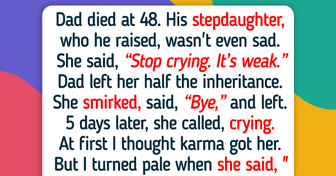
12 Small Acts of Kindness That Quietly Changed Lives
